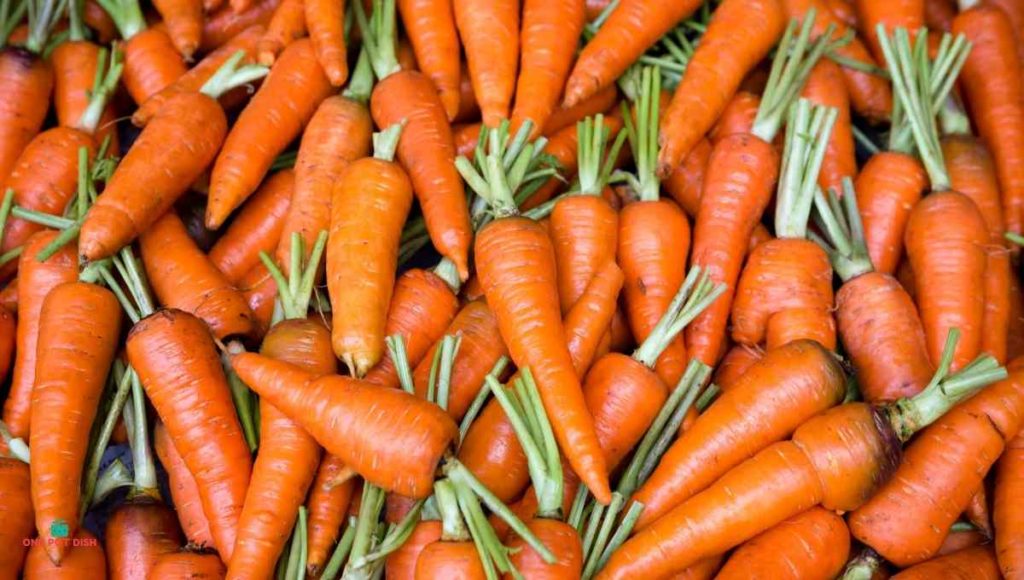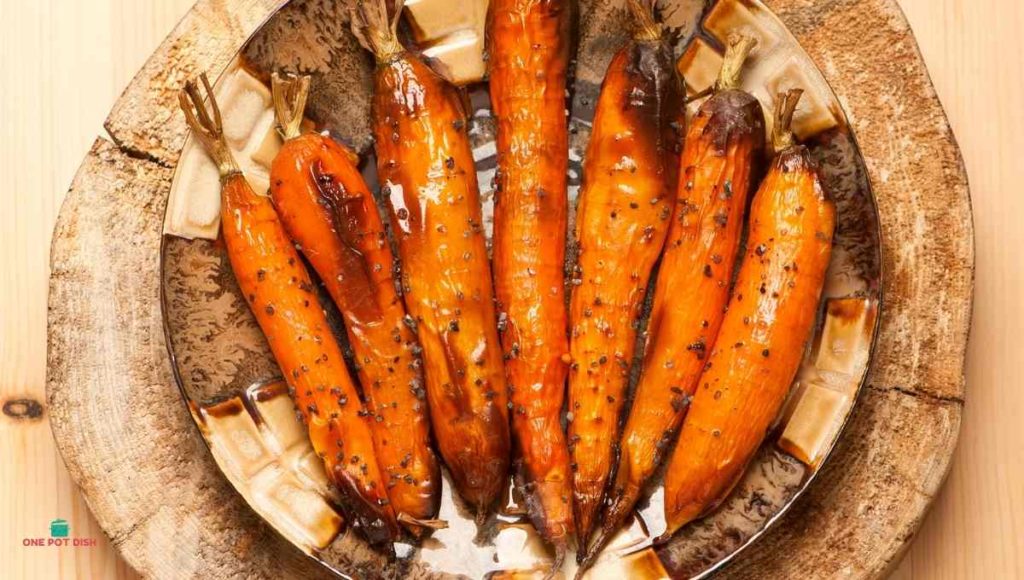Need the perfect sweet and earthy vegetable to serve as a side for your parties, family gatherings, holidays, or celebratory dinners? Carrots will definitely solve all your problems.
Carrots can be cooked through steaming, roasting, broiling, sautéing, or grilling and works great when eaten as a snack or appetizer. They’ve also added in other dishes such as salads, casseroles, stir-fries, soups, omelets, quiches, stews, or baked goods such as cakes, cookies, muffins, and bread.
See our carrot recipe perfect for a special family dinner.
When a special occasion looms around the corner, make sure you know the proper carrot serving count for your guests.
For A Big Family Dinner like Christmas or Thanksgiving, how many carrots per person to serve?
It is recommended to use one-third pound of carrots per person. That means a one-pound bag of carrots makes about 3 servings.
How Many Carrots per Person?
You won’t have any problem serving carrots to your guests because everyone loves them. However, there may be rare situations where you have a vegetable hater on your guest list—yes, they definitely exist! Just make sure you find out who they are and how many.
After sorting that issue out, you can now proceed to determine how many carrots you’ll prepare and serve for each person. Remember the rule of thumb: one-third of a pound of carrots per person. Since it’s easier to purchase carrots in bags, a one-pound bag of carrots is equal to 3 servings.

How Many Pounds of Cut Carrots Do You Need to Feed People?
The same principle applies to parties, gatherings, and other celebratory meals with family or friends. For a more detailed calculation, refer to the table below:
| People | Amount of Carrots in Pounds |
| 1 | 1/3 |
| 3 | 1 |
| 5 | 1 1/3 |
| 10 | 3 1/3 |
| 15 | 5 |
| 20 | 6 1/3 |
| 25 | 8 1/3 |
| 50 | 16 1/3 |
How To Cook Carrots For Parties And Gatherings
The most common way of serving carrots is either boiled or steamed, however, you can also try roasting, sautéeing, and cooking them in a slow-cooker for when your oven or stove top has suddenly broken down prior to your special events. And carrots go really well with prime rib roast.
Below is a detailed guide for you to follow to get the best-tasting carrots:
How To Prepare Carrots For Cooking
Wash the carrots thoroughly under tap water to remove dirt or debris stuck to it and then cut the bottom and top parts. If there is any pale-green skin present on the top of the carrot, slice it because it may taste unpleasant.
You can opt to peel the skin or not since it’s edible anyway. However, if you have larger and older carrots, the skin may taste unpleasant so it would be wise to peel them. Afterward, you can cut them into round shapes of about 0.25 inches each so that they would be cooked faster and be served to guests easier.

If you want to save time, you can purchase packaged pre-cut carrots. They’re already washed and sliced uniformly so you don’t have to do it yourself. Just remember that 3.5 cups of packaged carrots is equal to about 3-4 servings.
How Long Should You Boil Carrots
It depends on how thick the carrots are or how they’re sliced. For carrots that are sliced at 0.25 inches, boil them in salted water for 7 to 9 minutes or until crisp-tender. Carrot strips boil for less than that at about 4 to 6 minutes, and baby carrots take even longer at 8 to 10 minutes.
You can boil carrots for longer than 4 minutes, just make sure you don’t go beyond 10 minutes or they’ll turn to mush. Afterward, drain the water from the carrots and season. You can use honey butter seasoning or classic salt and pepper. You can even try greek or ranch seasoning, whichever you prefer!
How Long Should You Steam Carrots
Make sure you have a steamer basket before cooking the carrots. Place it on top of a saucepan with water and bring to a boil. Add the carrots, cover the steamer basket using a lid and wait for about 8 to 10 minutes for 0.25 inch-slices or baby carrots, and 5 to 7 minutes for carrot strips.
Test the doneness of the carrots using a fork and make sure they’re at a crispy-tender consistency before taking them out to season. Coat with olive oil and herbs such as dill, thyme, oregano, parsley, basil, or chives. If you want a slightly tangy option, try adding cumin and lime juice or lemon zest.
What Are Other Ways Of Cooking Carrots?
- Roasting – after slicing the carrots, season them with salt, pepper, and olive oil. If you’re feeling particularly creative, you can add Dijon
- mustard, thyme, balsamic or apple cider vinegar, and garlic powder. Roast for 35 to 40 minutes until they achieve a crisp-tender doneness.
- Sautéing – add about one-third cup of water into a skillet but you can also use vegetable broth. Cook the carrots for 10 to 12 minutes, then increase the heat to medium-high. Mix in the olive oil and sprinkle some salt until all the water in the skillet has evaporated, then cook for another 5 minutes or until the carrots are caramelized.
- Cooked in a slow-cooker – just add a mixture of half a cup of chicken broth, three-fourths cup chopped onion, and half a teaspoon of salt with carrots then cook on high for about 3 hours. You can also try adding half a cup of apple juice or apple cider and garnish with fresh chives.
What Goes Well With Carrots
Try any fish-based recipes such as seared salmon and fish tacos with avocado sauce or meat dishes such as braised beef, meatloaf and steak. You can also try chicken (roasted, creamy, honey garlic), pasta (primavera, spaghetti, macaroni), rice (basmati, pilaf, mongolian), sandwiches, stews, and soups.
For alcoholic beverages, cocktails are the best choices, especially those that are whiskey or bourbon-based, and margaritas. White wines that are dry or semi-dry can also work. You can also try non-alcoholic beverages such as soda, apple or sparkling cider, ginger ale, and even black tea.